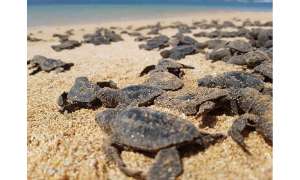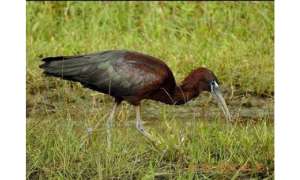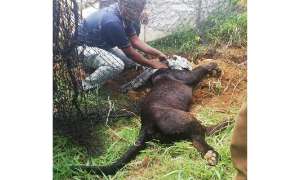
Jun 03 2020.
views 253With more trees being cut, more waterways dried up, wildlife hunted and poached, we humans will soon complain about an imbalance in nature. But whether we will be late, is the question at hand. As much as it is important to bring about development, integrating sustainability in development has become an immediate need of the hour. In view of World Environment Day which falls on June 5, the Daily Mirror Life asked a few individuals and organisations that have been involved in wildlife conservation to share their concerns.

President’s attention a must
According to the Department of Wildlife Conservation (DWC), Human-Elephant conflict has been minimised to an extent when compared to the first few months in 2019. However much more needs to be done in terms of elephant conservation and protecting the environment plays a key role. “There was a time when we planted 12 million when I was working at the Mahaweli Authority,” recalled Jayantha Jayewardene, Asian elephant expert and Managing Trustee at Biodiversity and Elephant Conservation Trust. “But today half of these trees have been cut and we don’t even know if these trees have been looked after. Therefore trees need to be planted, protected areas need to be demarcated if we are to talk about protecting the environment. However, when a politician gets involved the staff in the relevant authorities does not want to be involved. Therefore the President has to get involved in solving issues related to wildlife from now onwards.”

When asked about existing legislation, Jayewardene further said that there has to be a realistic change. “Before we change the Flora and Fauna Protection Ordinance we need to find out what needs to be changed.”
Mixed habitat protection
The Wilderness and Wildlife Conservation Trust, headed by Dr. Andrew Kittle and Anjali Watson, has been working extensively to preserve, protect and create wilderness areas specifically on the island and to preserve and protect its wildlife populations. The following is a statement issued n view of World Environment Day. “In an island such as Sri Lanka where space is a limiting factor in how we choose to manage the land is paramount to conservation. If we are to remain a biodiversity high nation we need to ensure that our varied wild and mixed habitats are intact and that regeneration of areas into wildlands becomes a procedure pursued by all landowners. By doing so we can increase forest cover, improve links between wilderness lands, and increase patch forests and forest gardens which wildlife use as movement corridors and refuges here in Sri Lanka. For our wide-ranging only big cat, the leopard and the world's largest terrestrial mammal the elephant, this is essential and if we are to continue to have them on this island not just hemmed into national parks but present throughout, as they are now, then this landscape-level regeneration and conservation are essential".

"Our Physical Plan for this island needs to take into consideration where our wildlife is and that their dispersal corridors can still be maintained together with development plans. We are now surely aware that the economic stability of a nation is maintained by ecological integrity so this is not about trading one for the other. These mixed forests, patch forests, ridgeland, and watercourse forest reservations are not only vital for larger animals but are essential refuges for many of our smaller endemic fauna and flora, especially herpetofauna and so they need to be considered for protection. Looking beyond national parks to include smaller conservation units across the landscape that link to the larger national parks and sanctuaries is a way forward; where landowners, in addition to state authorities, become part of Sri Lanka s overall conservation and protected area landscape. We must act now to move in this direction of mixed habitat protection of multiple owners for the wildlife themselves by their presence and use of these habitats is telling us that is what is required. For such a small island with a high human population to still have such terrestrial and marine wildlife is an achievement but if we are to continue to do so we must move forward with care and knowledge of how we are to use the landscape so as to ensure we have viable wildlife population s for the future on this island".
"A silent forest is of little value, it must be alive with wildlife for it to be truly productive. China had this phenomenon where their remaining large tracts of forest land where silent without bird song or animal sound because they had hunted them all out. Europe and North America hunted out many of their wide-ranging species and predators to extinction and are now looking to bring them back via controversial rewilding programmes. We stand on the positive side of this, partially because our predecessors had the foresight to ban hunting before our wildlife populations were completely decimated, and thus our hunting reserves are now our national parks. We must show similar foresight and collectively strive to continue to have viable wildlife populations together with intact ecosystems. It is not just the role of the governmental wildlife and forest authorities but a role that each of us can play to retain, conserve and regenerate our wild spaces.”
Immediate need for legislations
"Sustainability has become a bit of a buzzword lately,” opined Anoka Abeyratne, conservationist and activist on sustainable development. “Sustainability or protecting the environment is trying to put a couple of random plants wherever someone feels like it - there need to be assessments done, and most importantly look at the maintenance of the plants after planting. You get a lot of companies trying to "greenwash" institutions as being sustainable when their core business model is incredibly sustainable. I once worked for an apparel company which allocated approximately 0.002% of their budgets for sustainability but in reality, when your industry is the second biggest polluter of water and your budgets are a lot bigger, things need to change, actual innovations need to happen - not just random innovations in the name of innovation.”

“More companies are looking at sustainability including financial companies now - that's because the environmental issues and risks are outweighing the benefits of their investments,” she added. “So we need to create more sustainable income streams - for that we need legislation that supports sustainable businesses. For example subsidizing the renewable energy sector, carbon taxes, increasing public transportation mechanisms, popularise and support eco-tourism (nobody is going to come to SL to see new buildings) more walking only roads, better forest cover and the Animal Welfare Bill to create tough measures against animal abusers, regulate encroachment of water sources and forest lands. Every time I go to a lake or a river or a forest, there's always illegal encroachment. This endangers humans because of infectious disease from animals while animals attacking them can accelerate wildlife-related conflict. The sad incidents of leopards in the hill country thanks to the tea industry which cannot compete with the African tea producers (which again downplays the realities of deforestation associated with it), means that as a country we need to reassess what our strengths are and play to those strengths. We cannot become the next Singapore, we have a lot more wildlife and related incredible places. We need to get renewable energy so that pollution doesn't give everyone respiratory disease. Our policies and its implementation haven't come far at all. We banned and took away the ban on plastic bag usage thanks to lobbies and pressure from manufacturers. All of this needs to change.”

“However, there are loopholes that allow a President to put roads or claim forests for settlements which happened with the previous President. These need to change. We can no longer think that the economy is above it all as some economists feel. We need to balance that with sustainable policies that allow the best living conditions for everyone including our animals if we want to succeed in the long term".
“I'm not blindly saying stop all economic activities, there's a reason why I worked in all these places to learn and see how things worked, and there's a lot of room for improvement that needs to happen now, not in 10 or 20 years. We need legislations that enforce composting of biodegradable, limitations on plastics and a polluter pays type of legislations that require companies to not take the easy way but to figure out collections of their waste etc. Some companies come up with PET clothing etc but again this is not even 3% of all the plastic bottles produced. Again once the clothes are made, what happens to it once it's worn out? It goes into our water and our food by becoming microparticles. That's the reality behind it."
Pics courtesy : DWC
0 Comments